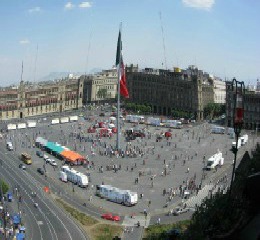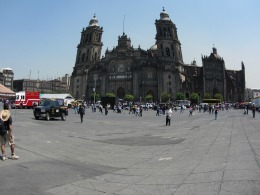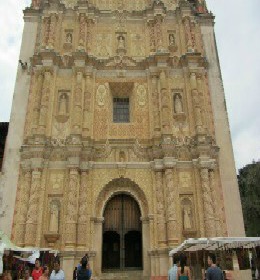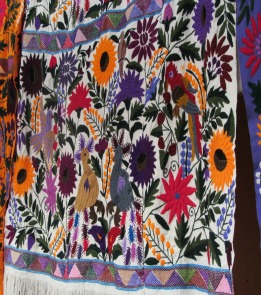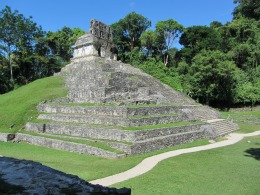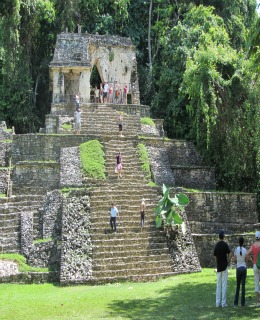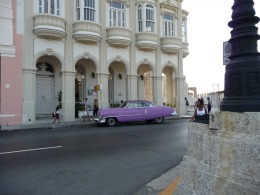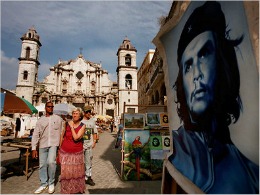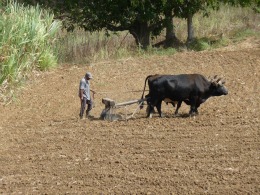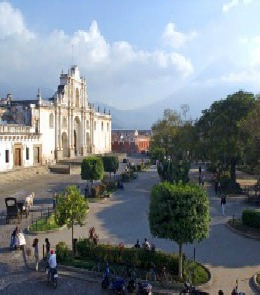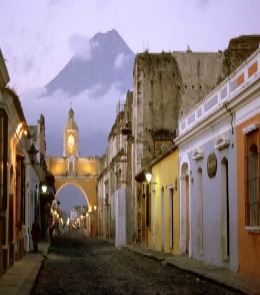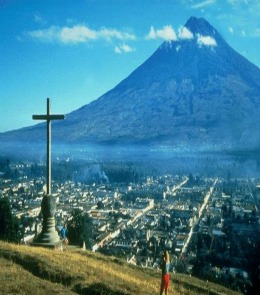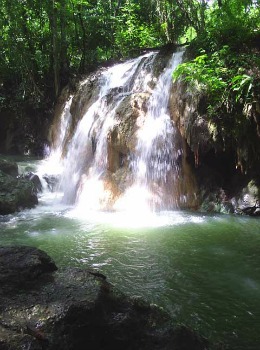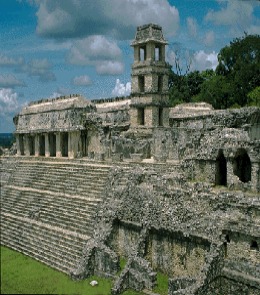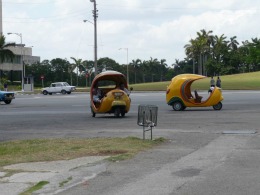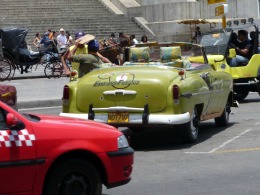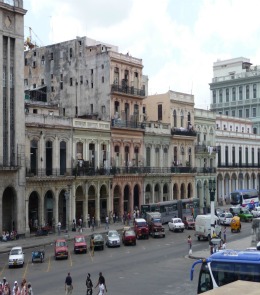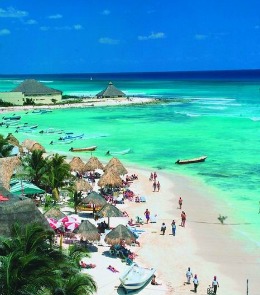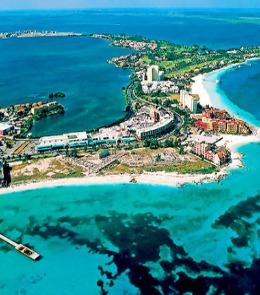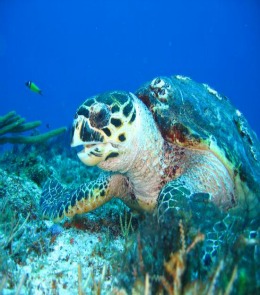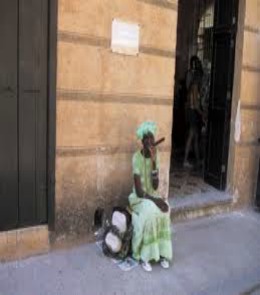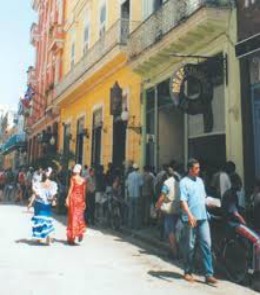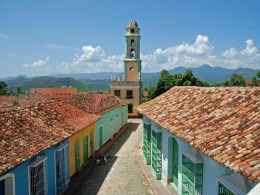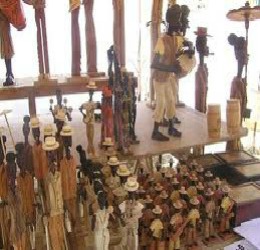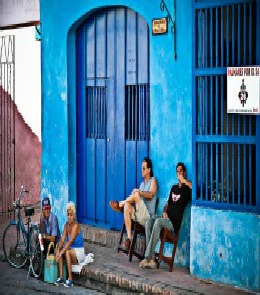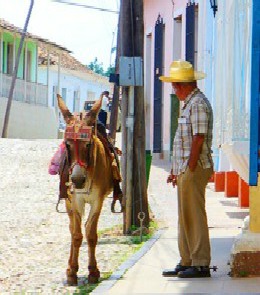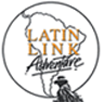Trip Itinerary – Buena Vista Mexico
The best of Mexico PLUS Guatemala all on one fabulous adventure.Mexico City – the world's largest city, Teotihuacan Ruins in the Mexican highland, Puebla beautiful Talavera tiles, Monte Alban – a World Heritage Site,San Cristobal de las Casas, Palenque the ancient Maya site of Palenque, Campeches, Uxmal, Chichen Itza ,Playa del Carmen and the archaeological ruins of Tulum. We have been operating this itinerary for the last 10years without any incidents and consider it a safe region to travel through. It does take you off the beaten track and away from the beach scene to experience the real culture of some of Mexico’s most unique regions Optional extension to Cuba
Day 1 Fly to Mexico City On arrival to Mexico City we will transfer to our centrally located hotel. Accommodation: Hotel Casa Blanca https://en.hotel-casablanca.com.mx
Mexico City or “Cuidad de Mexico” is the capital of México, very old, the worlds largest city, the financial, political and cultural center of México, the nightlife capital of México, one of the worlds great cities, huge, one of the world's most difficult cities to drive in, filled with exciting things to see and do, sinking, an energetic metropolis or just an incredible place to visit. Day 2 Mexico City (B) Anthropology Museum Mexico City has plenty ot offer. First to this impressive museum. Crammed full of relics from the many temples scattered around Mexico and the Yucatan Peninsula, it is easy to ‘lose’ ourselves for half the day. A bonus is the entertainment by Mayan dancers outside the museum garbed in their exotic dress. Rest of the day to explore more of this sprawling city.
Museo Nacional de Antropología...Extensive collection of artifacts, spanning some 100,000 square feet. This is one of the finest anthropological museums anywhere in the world and certainly the most important in México. The ground floor focuses on the native cultures and societies of México before the Spanish conquest. The famous Aztec sun stone is displayed among the extraordinary collection of artwork from the indigenous population. The museum also provides information about how the descendants of these cultures live today.
Day 3 Teotihuacan Ruins – Mexico City (B) Take the local metro and bus out to these magnificent ruins situated outside the city. Spend the day exploring. Climb the Sun and Moon pyramids, marvelling at the superb workmanship of these fantastic buildings covering 25 square miles that were once home to one million people.
Teotihuacan arose as a new religious center in the Mexican Highland, around the time of Christ. Although its incipient period (the first two centuries B.C.) is poorly understood, archaeological data show that the next two centuries (A.D. 1-200) were characterized by monumental construction, during which Teotihuacan quickly became the largest and most populous urban center in the New World. By this time, the city already appears to have expanded to approximately 20 square km, with about 60,000 to 80,000 inhabitants. The development of the city seems to have involved inter-site population movements, exploitation of natural resources, an increase in agricultural production, technological inventions, establishment of trading systems and other kinds of socio-political organizations, and attractive belief systems.By the fourth century, unmistakable influences of Teotihuacan were felt throughout most parts of Mesoamerica.Teotihuacan was the 6th largest city in teh world during its period of greatest prosperity, according to an estimated population of 125,000).The city seems to have functioned for centuries as a well-developed urban center until its rather sudden Day 4 Mexico City- Puebla (B) This morning we take a bus to Mexico’s fourth largest city- Puebla. Puebla is best known for the beautiful Talavera tiles that adorn its walls, domes, and interiors; and for the mole poblano, Mexico’s national dish that originated here. The streets of Puebla, a World Heritage Site, are lined with churches, mansions, and other handsome buildings and are a delight to stroll around. Accommodation: Hotel Colonial de Puebla Visit Cholula, a small colonial town with some fine churches and the remains of the Tepanapa pyramid, measuring 450 metres along each side of the base and 65 metres high, making it larger in volume than Egypt’s pyramid of Cheops. Now overgrown and with a church at the top, it is difficult to recognise the remains of this magnificent pyramid. Day 5 Puebla -Oaxaca (B) Continue our journey this morning to Oaxaca . Accommodation: Oaxaca Real Hotel Day 6 Oaxaca(B) Visit to Monte Alban, a World Heritage Site, spectacularly situated on a mountain 400 metres above the Oaxaca Valley, a few kilometers west of Oaxaca. Monte Alban is the greatest of the Zapotec cities and it came to dominate the cultural, religious, and economic life of the region. It is also a triumph of engineering where the mountain top was leveled to allow for the creation of the ceremonial site. We will explore the Gran Plaza, the Ball Court, the Observatory, the Palace, and other notable structures. Day 7 Oaxaca-San Cristobal de las Casas (B) Oaxaca, located in a valley surrounded by the Sierra Madre del Sur, was once the centre of the Mixtec and Zapotec civilizations. Today Oaxaca is a combination of pre-conquest, colonial and modern influences. The early Zapotecs developed a great civilization at nearby Monte Albán centuries before the birth of Christ. Two of Mexico's most famous presidents, Benito Juárez and Porfirio Diaz, were of Zapotec origin. After the Spanish conquered Oaxaca in 1533, the city quickly took on a Spanish flavour, with ornate buildings, churches, elegant archways, balconies, decorative grill work and charming plazas. Yet despite its colonial heritage, the city remains basically Indian at heart, wherein lies its charm.Enjoy a morning walking tour Afternoon to explore Oaxaca. This evening transfer to the bus terminal and travel by super comfy overnight bus with full reclining seats Day 8 San Cristobal de las Casas (B) Arrive Tuxtla Gutierrez We will then transfer via the spectacular Sumidero Canyon to San Cristobal. En route, the tropical heat and plant life prevalent in Tuxtla Gutierrez gradually give way to the nippy mountain air and pine forests that surround San Cristobal, where days are sunny and warm, and nights may be chilly. Amber, the translucent stone derived from fossilized coniferous resin, is plentiful in the region, and attractive shops in town display creative jewellery fashioned out of silver and the ancient rock. Accommodation: Hotel Diego de Mazariegos Day 9 San Cristobal de las Casas (B) Enjoy the tranquillity of this small Spanish built town situated in a pine-clad valley and surrounded by distinctly mysterious Indian villages which we will visit. These villages are colourful and they all have their special cults – the churches are quite different as they blend Catholic with their own ancient religions. We will explore on foot the colonial city center of San Cristobal de las Casas. We will visit the cathedral, on the north side of the pretty main square, with its lavish interior and gold-encrusted pulpit. We then walk a few blocks to the impressive 16th-century Dominican church Templo de Santo Domingo, with its intricate pink façade and gilded Baroque interior. Time to browse the handicraft market in front of the church, where Tzotzil Indians from the surrounding hills come to trade. We then drive 10km into the Chiapas highlands, to the Tzotzil Indian villages of San Juan Chamula and Zinacantan. The Tzotzils descend from the ancient Maya and maintain some unique customs, costumes and beliefs. We will visit the beautiful white church in San Juan Chamula. The candles, incense and chanting worshippers make a powerful impression. We then drive to the nearby village of Zinacantan, with its pretty church and handicraft market. Day 10 San Cristobal de las Casas- Atitlan (B) We depart by bus this morning and travel through to the Agua Azul Waterfalls, a wonderful natural resource that has turquoise blue waterfalls that reaches 20 meters. Then on to the Misol-Ha Waterfall, impressive waterfall that reaches 50 meters high, an ideal place to cool off by having 1 hour to visit this beautiful place.Continue on to Palenque Accommodation:Hotel Cuidad Real Palenque www.ciudadreal.com.mx In the foothills of the Tumbala mountains, the ancient Maya site of Palenque sits on a ledge overlooking the swampy plains that stretch northward all the way to the Gulf coast. Palenque was at its height between 500 and 700 A.D., when its influence extended throughout the basin of the Usumacinta river. The elegance and craftsmanship of the buildings, as well as the lightness of the sculpted reliefs with their Mayan mythological themes, attest to the creative genius of this civilization. It was the flood plain of the Usumacinta river that most likely provided Palenque's inhabitants with the resources to construct their extraordinary city. Blessed with the highest average rainfall in Mexico, this fertile alluvial plain could have been successfully farmed with raised beds, and would have produced a harvest that not only could sustain a large workforce but would also have provided an abundance that could be traded along the Usumacinta. It seems that the gods were as enchanted with Palenque as today's visitors We take the whole day to enjoy the ruins – they defy description – impressive to say the very least and set in pristine rainforest. This is one of those days you will never forget. The Mayan ruins of Palenque were hidden from the modern world until the late 1700s when Mayan hunters told a Spanish priest about the great stone palaces that lay in the jungle. The priest's report and those of other early Spanish explorers helped to unearth one of the most amazing Mayan sites in Mexico. Day 12 Palenque - Campeche (B) This morning depart by bus to Campeche on the coast . Campeche is a captivating port filled with naval history, Baroque Spanish architecture, and aging beauty. It was declared a UNESCO World Heritage site in 1999, an event that has spurred restoration of the city’s splendid architectural treasures. Specifically, UNESCO cited Campeche city as “a model of the city planning of a baroque colonial city. Afternoon Tour of Campeche Accommodation: Hotel Plaza Colonial www.hotelplazacolonial.com Day 13 Campeche -Kabah & Uxmal - Merida (B,L) Travel to the archeological sites of Uxmal & Kabah . After lunch continue on to Merida . Merida - known as the ‘White City” due to the large amount of limestone and white paint used, was a centre for Mayan culture long before the Conquistadors arrived. These days Merida is a bustling, colonial city and there is plenty to see and do. Enjoy the ambience of this friendly town, marimba bands plus the famous mariachi bands. Culture in the Yucatan. For centuries, the people living on the Yucatan Peninsula were isolated from the rest of Mexico. Largely due to geography, Yucatecan residents have always communicated more easily with parts of North America, the Caribbean and Europe. In addition, the Yucatan Peninsula is home to North America's largest indigenous Indian population, the Mayans, who still speak their own language in addition to Spanish. Accommodation: Hotel Del Gobernador http://www.gobernadormerida.com.mx
Time to enjoy what Merida has to offer – many plazas, museums, theatres and Historical sites. There really is a lot to see and do. Day 14 Merida –Chichen Itza –Playa del Carmen (B,L) Take the morning bus to Chitzen Itza to visit the most famous of all the Mayan Temples . Chichen Itza, founded in 432 AD. Here we find some of the finest examples of Mayan temples, pyramids, ballcourts, plus the only observatory to be found on the Yucatan. Chichen Itza is arguably the most famous Mayan site in Mexico. and derives its name from the deep, naturally occurring well, located near the centre of the site. During the hey-day of this city, this well was used for human sacrifice! But it is the astounding and unique architecture - a result of the invasion by the Toltecs people - that makes this site so incredible.Later today continue on to Playa del Carmen Playa del Carmen- the former sleepy coastal village has a charm and laid back lifestyle all of its own and a lovely beach . Arrangements end on arrival at Playa del Carmen Accommodation: Hotel Las Golondrinas situated in a quiet area , a few blocks to the beach and near Fifth Avenue- the main area for restaurants and shops Day 15 Tulum & Cenotes (B) Explore coral reefs, ancient history, and nature in the Riviera Maya on an 8-hour combination tour that features some of the best of Yucatan in a single day. Snorkel through the coral reef in the Caribbean Sea, visit the Tulum archeological site, and swim in a cenote, then explore a limestone cave and take a jungle walk. This tour includes entrance fees, a buffet lunch, and door-to-door transport from hotels in Playa del Carmen.8-hour Tulum Ruins, Caribbean Sea snorkeling, and cenote combo tour. Explore the Mayan Ruins in TulumTake a walk through a cave before strolling through the jungle .Go for a swim in Cenote Caracol.Snorkel through a coral reef in the Caribbean Sea. Return to our hotel in Playa del Carmen Day 16 Playa del Carmen (B) Day at leisure to relax on the beach or options available for trips to Cozumel Island Day 17 Playa del Carmen- Cancun (B) You will be transferred to Cancun airport for your flight departure Or Cuba Extension Day 17 Playa del Carmen -Cancun -Havana (B) Transfer to Cancun Airport and fly to Havana, capital of Cuba and transfer to your hotel. Havana was designated a World Heritage Site by UNESCO in 1982. It contains a wealth of colonial architecture, and the old city and streets around the Malecon (ocean-side walkway) are best discovered on a walking tour (tomorrow). Allow the traditional and modern sides of the enigmatic city to unfold before you.
In Havana there are many churches, museums and memorials all worth taking a further look at. Street after street is graced with grand facades, boasting massive wooden doors, barred windows and narrow sidewalks. This is Havana, a place you may have never known, but a place that you will never forget once you have been to it. Day 18 Havana (B) Explore this colonial city and feel the beat. Wonderful churches, palaces and museums, colourful handicraft markets. Formidable Spanish castles of El Morro and La Cabana. Intriguing revolutionary monuments, including the Pavilion Granma, the Museo de la Revolucion and the Memorial Jose Marti. Gran Teatro de La Habana, the oldest functioning theatre in the Americas. – lots to see and do. We have a half day guided walking tour so we can get the lowdown on the colourful history of this city. Havana preserves more of its historic colonial legacy than any other city in the Americas. In 1982, UNESCO declared Old Havana a World Heritage Site, a veritable living museum, in which no fewer than 144 buildings from the 16th and 17th centuries are preserved. Day 19 Havana (B) We have the day to explore the many museums and take the Ernest Hemmingway Tour. The Museum of the Revolution is a must see – also the cemetery where the guards change every half hour at the mausoleum of Jose Marti – which is quite a spectacle. Ernest Hemmingway Tour : Travel 15km to the Finca Vigia, the farm that Ernest Hemingway bought in 1940. The Museum consists of Hemingway's house, a three-story tower, a guest bungalow and a garage. The exhibits attempt to show the flavor of Hemingway's life, with furnishings, hunting trophies, paintings and books that suggest something of his personality. This farm is where Hemingway wrote several things, including The Old Man and The Sea, the novel for which he was awarded the Nobel Prize. This has been Cuba's most famous restaurant since that time. Hemingway, John Ringling and various Cuban presidents have been regulars here because of the excellent food. Our special recommendation is that you do not leave the Island without trying one of the daiquiris concocted in the Floridita Bar. Lunch at the Floridita. Day 20 Vinales (B) Travel through the countryside to the beautiful Pinar del Rio Province, famous for it’s tobacco and hops growing. Vinales and especially the surrounding valley are among the absolute top attractions of Cuba. About 40 km north of Pinar del Rio in the Pinar del Rio province, the valley is stunning. The flat land, full of tobacco and palm trees is scattered with 20-30m mogotes. These are the remnants of the former plateau which is almost entirely washed away by water during the last couple of million years. The process is comparable with that in Cappadocia, (Turkey) but here the mogotes are completely covered with green vegetation. Like everywhere in Cuba, the people in Vinales are very friendly. Today visit a tobacco farm and factory and see how it’s done.Return to Havana Day 21 Havana – Trinidad (B) After breakfast we depart for the quaint coastal town of Trinidad. You’ll enjoy the rolling countryside stopping en route at Che Guavara’s enormous monument at Santa Clara. Trinidad is the best-preserved colonial city in Cuba, in the shadow of the Escambray mountains, and was not even linked by road to the rest of the country until the 1950s. Declared a national monument by the Cuban government this city is very much as it was four centuries ago, the beauty of its baroque architecture and cobblestone squares harking back to a bygone era when Trinidad was a key player in the Caribbean slave trade. Day 22 Trinidad (B) Take a city tour to get orientated. This delightful ‘museum’ town is on the coast, declared a World Heritage Site by UNESCO – 50,000 inhabitants. Enjoy the lively and famous Cuban music. Afternoon free to explore the many museums – giving you a picture of life before communism and Fidel Castro. Or relax and enjoy the Carribean sunshine and the fabulous beach. Day 23 Tinidad - Havana - Cancun (B) You will be transferred to the airport for you flight to Cancun . Connect with International departure |
||
Dates & Prices Departures: Daily
Prices Per Person in NZ$ Mexico Double / Twin Single Supplement
May -Dec '25 $5775 $1585 Based on a minimum of 4 participants May - Dec '25 $6175 $1585 Based on a minimum of 2 participants Cuba Extension $3380 $650 Based on a minimum of 2 participants
|
||

















